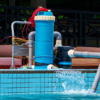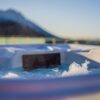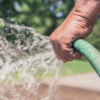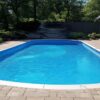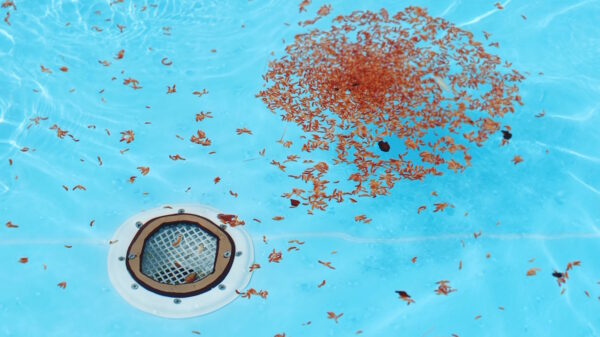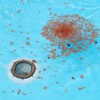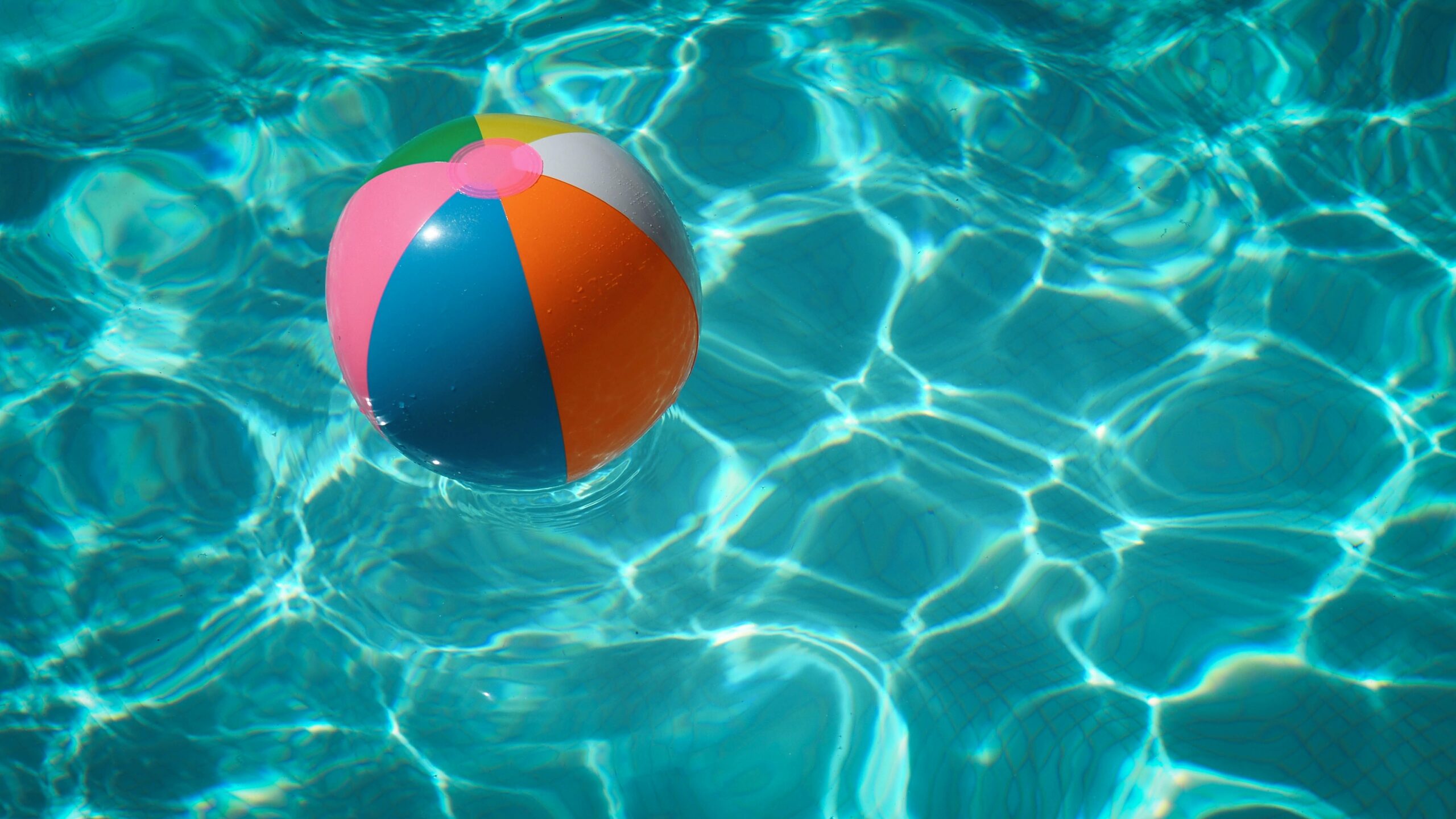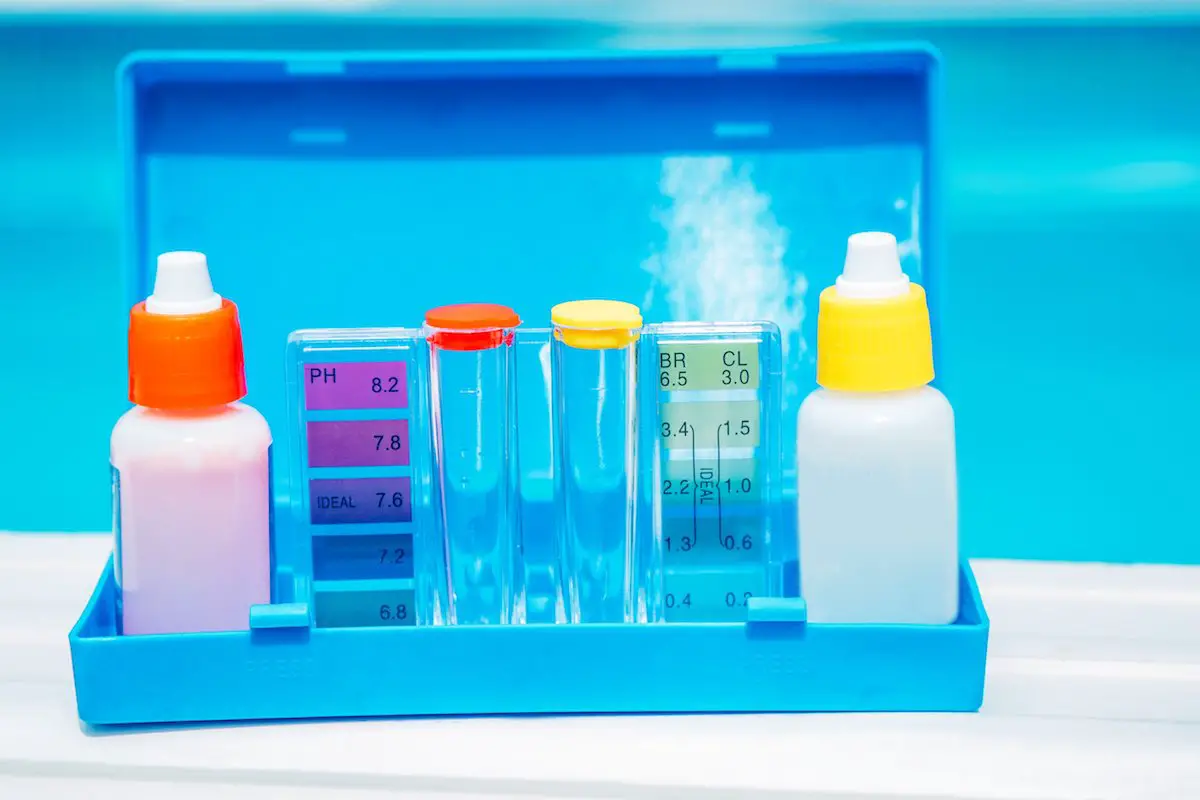Cyanuric Acid and Why Your Pool Needs It: Complete Guide
Picture this: it’s a hot, humid summer day in July. The sun is blazing, and nothing sounds more refreshing than a dip in the sparkling pool. You suit up, grab your towel, and head to the backyard to cool off. You put on your shades and take in the sight of your personal oasis: green trees, buzzing bees, and summer sun reflecting off the cool…green? water. Why is it green? No pool owner wants green pool water. We all know that chlorine is an important chemical in the upkeep of your pool, but did you know that chlorine alone won’t do the job? It needs the help of another important chemical, cyanuric acid. If you didn’t know this you’re probably also wondering, what is cyanuric acid and why does your pool need it?
Cyanuric acid is a chemical that is used to stabilize chlorine in pool water. Without cyanuric acid, chlorine would be quickly dissipated by the sun’s UV rays, making it ineffective at sanitizing the water or preventing the growth of algae and bacteria. Cyanuric acid essentially “protects” the chlorine from being broken down, allowing it to do its job more effectively.
So if you noticed an overgrowth of algae or noticed that your pool water was turning a shade of green this summer, your pool might be lacking the proper amount of cyanuric acid. That’s why in this article, we’ll explain what cyanuric acid is, why these problems with your pool water occur, how to test your cyanuric acid levels, and how to maintain the proper level of cyanuric acid all summer long.

What Is Cyanuric Acid?
Cyanuric acid is a white, crystalline solid that is used as a disinfectant, algicide, and herbicide. It is the tricyano group’s parent compound. Cyanuric acid is relatively stable in solution but decomposes when heated. The products of decomposition are carbon dioxide, nitrogen oxides, and cyanates. Cyanuric acid is used in swimming pools as a disinfectant and algicide.
When your pool doesn’t have enough cyanuric acid, it can lead to a number of problems. The chlorine in your pool will be less effective, and you may find that your pool water turns green. You may also experience more algae growth and higher levels of bacteria. The absence of enough cyanuric acid can also cause unnecessary damage to your pool liner. In addition, your pool filtration system may not work as efficiently.
Benefits of Cyanuric Acid
There are many benefits to using cyanuric acid in your swimming pool. As it can help pool owners by keeping the water clean, protecting the pool liner, aiding the filtration system, and more!
1. It Keeps the Pool Clean
One of the most common problems that pool owners have is with their pool water gradually turning from clear blue to a muddy green color. This is where cyanuric acid comes in. The first way that cyanuric acid works to protect your pool water is by keeping it clean and clear and preventing it from turning that unsightly green color. The chemical does its job by binding with the chlorine molecules individually, which helps to keep the chlorine present in the pool water for long periods of time. This means that the pool will require less frequent chlorinating and will be less likely to turn green. This is great news for pool owners who want to keep their pools sparkling and clear!
2. It Prevents the Overgrowth of Algae and Bacteria
Beyond just the green discoloration of pool water, you may have noticed actual growth and particles floating in your pool. These unsightly blooms are algae. Algae is a very common problem for pool owners because algae thrive in bright sunlight. Algae loves warm, sunny conditions, so if your pool is in an area that gets a lot of sun, it’s more likely to develop algae growth. Cyanuric acid works in your pool water to prevent the overgrowth of algae and bacteria. It works by binding with the chlorine and making chlorine molecules more stable. Additionally, cyanuric acid causes the chemical to be more effective at sanitizing the water and preventing algae or algal blooms.
3. It Kills Viruses
Cyanuric acid is also effective in killing viruses, making it a valuable tool in the fight against waterborne diseases. It works by inhibiting the growth of bacteria, making it difficult for them to reproduce and survive. This can help to keep your pool water clean and free of harmful bacteria.

4. It Protects the Pool Liner
If you’ve ever left your pool liner in the sun for too long, you know how quickly it can fade and become damaged. This is another way that your pool can quickly begin to appear older and neglected. But did you know that adding cyanuric acid to your pool water can help protect your liner from UV damage? When cyanuric acid is added to pool water, it creates a sort of “shield” around the chlorine molecules, which helps them resist UV rays. This means that your chlorine will last longer in the sun, and your pool liner will be protected from fading and damage. Once again, pool owners can thank cyanuric aid for keeping their pools looking pristine and in mint condition!
5. It Helps the Pool’s Filtration System
Another way that cyanuric acid can save you time and money as a pool owner is by helping your pool filtration system to run more effectively. The presence of algae and bacteria in your pool water will cause your pool’s filtration system to work overtime. It will have to work harder and more frequently to keep the pool water clean and clear of debris. Because your pool will experience less algae and bacteria build-up when your pool water has the proper level of cyanuric acid, its filtration system will be able to do its job more efficiently since there will not be as much debris or blockage. This will help you to avoid extra maintenance costs and hassle in the upkeep of your pool filtration system.
Downsides of Cyanuric Acid
Now that we have gone over all of the benefits of cyanuric acid in your pool, we must now discuss the downsides or cons to look of using it. So, while cyanuric acid is an important part of maintaining a pool, it actually is possible to have too much of it in the pool water. When cyanuric acid levels get too high, it can actually start to inhibit the chlorine’s ability to kill bacteria and other contaminants. This can lead to cloudy water and a potentially dangerous swimming situation. Additionally, too much cyanuric acid can cause skin and eye irritation for swimmers.
How to Test the Cyanuric Acid Levels In Your Pool
Because too much cyanuric acid can make your pool water unsafe and too little can result in ineffective sanitization, it’s important to test the cyanuric acid levels in your pool water regularly. Regular testing of the cyanuric aid levels in your pool is one of the best things you can do as a pool owner to extend the life and condition of your pool. The ideal level of cyanuric acid is between 30 and 50ppm, so aim to test your water every few weeks and adjust the level accordingly.
Here’s How to Test Cyanuric Acid Levels In Your Pool:
1. Purchase a Cyanuric Acid Test Kit
These cyanuric acid test kits are very easy to find and can be purchased from a pool supply store or online retailer.

2. Collect a Sample of Pool Water
The next thing to do is to follow the instructions included with the kit to collect a sample of pool water. Using a clean, empty container, scoop out about two cups of water from the pool. Try to get water from at least waist-deep in the pool. Using a ruler or measuring tape, mark the level of the water on the container. This will be your reference point for later. Add the water testing kit to the container and follow the instructions on the kit to test for cyanuric acid levels.
3. Use the Collected Water to Determine Cyanuric Acid Level of Your Pool
Compare the color of the water sample to the chart included with the kit to determine the cyanuric acid level.
Here is a video demonstration of how to use a test kit to test for cyanuric acid in your pool:
How to Add Cyanuric Acid to Your Pool
1. Purchase Cyanuric Acid
You can find this chemical at most pool supply stores. When it comes to purchasing cyanuric acid, you have two main options: buying it in powder form or buying it in tablet form.
Powder cyanuric acid is typically cheaper, but it can be difficult to dissolve in water.
Tablet cyanuric acid is more expensive, but it’s easier to use since you simply drop the tablet into your pool water and let it dissolve.
No matter which forms you choose, be sure to buy cyanuric acid from a reputable source. You don’t want to end up with a counterfeit product that doesn’t work as well or is even dangerous.
2. Once You Have Your Cyanuric Acid, It’s Time to Start Using It In Your Pool
The general rule of thumb is to add 1 pound of cyanuric acid for every 10,000 gallons of pool water.
Start by dissolving the powder in a bucket of water or adding the tablet to your skimmer basket.
Then, simply circulate the pool water until the chemical has been evenly distributed throughout the entire pool.

Conclusion
So, now you know what cyanuric acid is and how critical it is for the health and maintenance of your swimming pool. Without high enough levels of cyanuric acid, the pool’s water can turn that classic sickly green color, blossom with unwanted algae, and cause a hassle with the maintenance of both your pool’s liner and your water filter. We also learned that on the other hand, overly high levels of it can be detrimental to water and swimmers. That’s why we talked about how important it is to regularly test your pool water for the appropriate cyanuric acid level and how to add it to your pool. So, if you follow these tips to maintain the perfect level of cyanuric acid, you can ensure that your swimming pool is pristine and stays clean and clear to keep kids entertained during the summer and all season long!


